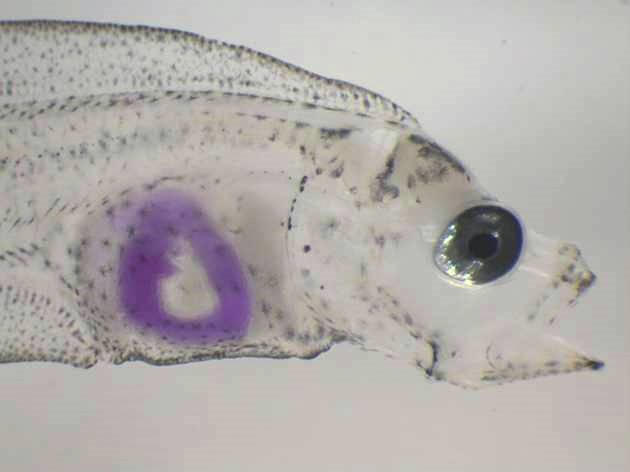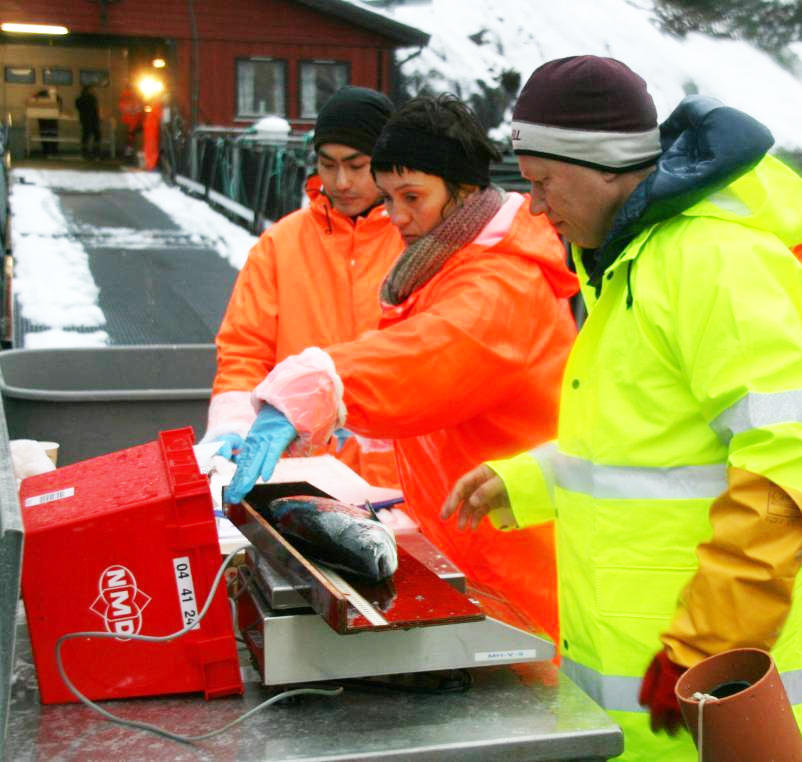LIFECYCLE: an EU success story
Keys to success in EU projects: think long-term, engage in pre-call discussions, network.

Main content
Thinking long-term, engaging in pre-call discussions, and developing / maintaining international networks are the keys to being successful in EU projects, and enable research groups to be able to recruit and train students and young researchers.
A number of researchers at the Department of Biology (BIO), Marine Developmental Biology research group are involved in a “large-scale integrating collaborative” EU project called “LIFECYCLE: Building a biological knowledge-base on fish lifecycles for competitive, sustainable European aquaculture”. As the LIFECYCLE web site explains, the project is a part of the EU vision that by strengthening basic and need-driven research, a strong Knowledge Based Bio-Economy (KBBE) will be created.
LIFECYCLE focuses on a number of central issues in fish biology and among the questions addressed by the Bergen group is the critical question in basic development biology: understanding the complex interactions between the factors affecting puberty in organisms. Other questions studied include understanding signalling factors that regulate life-stage transitions that includes development of the digestive system in fish as well as hormonal systems involved in regulate body composition and growth. Such understanding is extremely relevant in an applied context; that of optimising a sustainable aquaculture industry.
Sigurd Stefansson, the leader of the Bergen LIFECYCLE team in the 14 partner – 9 country project, explains that our poor understanding and therefore poor control of puberty in fish is one of the critical bottlenecks for optimising aquaculture practices. One of the questions the Bergen group is addressing is how fat status in fish and the hormone leptin levels relate to energy homeostasis and puberty. The relationship is relatively well described in mammals, but has not been closely studied in fish. The question in salmon, one of the fish species being studied in the project, is complicated by the fact that salmon have two different leptin hormones. In salmon the changes relating to puberty are complicated further by the change from a salt to fresh-water lifestyle. The Bergen group also involved with work on other species such as Atlantic halibut, which is a good model for metamorphic changes from a larva to a juvenile stage. There are large changes in the digestive system during metamorphosis and the team will try and elucidate some of the factors involved and the implications on the functional role on digestion. These are exciting research areas and the group’s activity has already led to new spin-off projects funded by the Research Council of Norway.
When asked about the EU project experience, Stefansson explains that this current project helps to reinforce network bonds that have been established for over 20 years between strong aquaculture research groups across Europe. Ivar Rønnestad, the leader of the Marine Developmental Biology research group at BIO and member of the Bergen Project team, explains that such EU projects enable the long traditions of research collaboration and expertise complementarities between such well-established networks and partnerships to obtain sufficient critical mass to go to the next step – that of being able to recruit and train students and post-docs; the next generation of aquaculture researchers. Having easy access to a large, diverse, group of aquaculture experts is a terrific learning opportunity for students – and provides opportunities to visit different labs and to learn a greater variety of skills than would be possible in any one location.
Rønnestad also pointed out that for this particular large-scale integrating collaborative project call, they were involved in the pre-call discussions: a practice that is becoming increasingly common as the EU invites expert contribution to help shape the format and contents of upcoming calls. As a result of this involvement, the project call ended up being a very good match with the network’s research interests. Stefansson mentioned another strategy for EU project success: the partners had three face-to-face pre-submission meetings to establish research priorities and clarify project goals.
Briefly, the LIFECYCLE experience suggests that a successful EU Project experience involves:
(1) becoming involved pre-call – keeping informed about upcoming call areas and contributing input that may impact a given call’s focus
(2) be actively involved in an international network
(3) apply for funding for pre-submission-networking meetings enabling face-to-face discussions
(4) EU project involvement enables smaller local research groups to fund students and post-docs and to be more attractive for recruitment of the best young researchers as the larger project provides complementary experiences and training opportunities
LIFECYCLE is enabling BIO researchers Stefansson, Rønnestad, Tom Ole Nilsen, Lars Ebbesson and Rita Angotzi to recruit students and young scientists – Ana Gomez, Christine Elgen and Stein Thon Klem; to conduct research into fundamental developmental biology – better understanding of the factors affecting fish puberty, energy homeostasis and growth and digestive function; this will hopefully yield results that will benefit Norwegian and European Aquaculture!
Visit LIFECYCLE’s excellent and informative website: http://www.lifecycle-fp7.eu/

